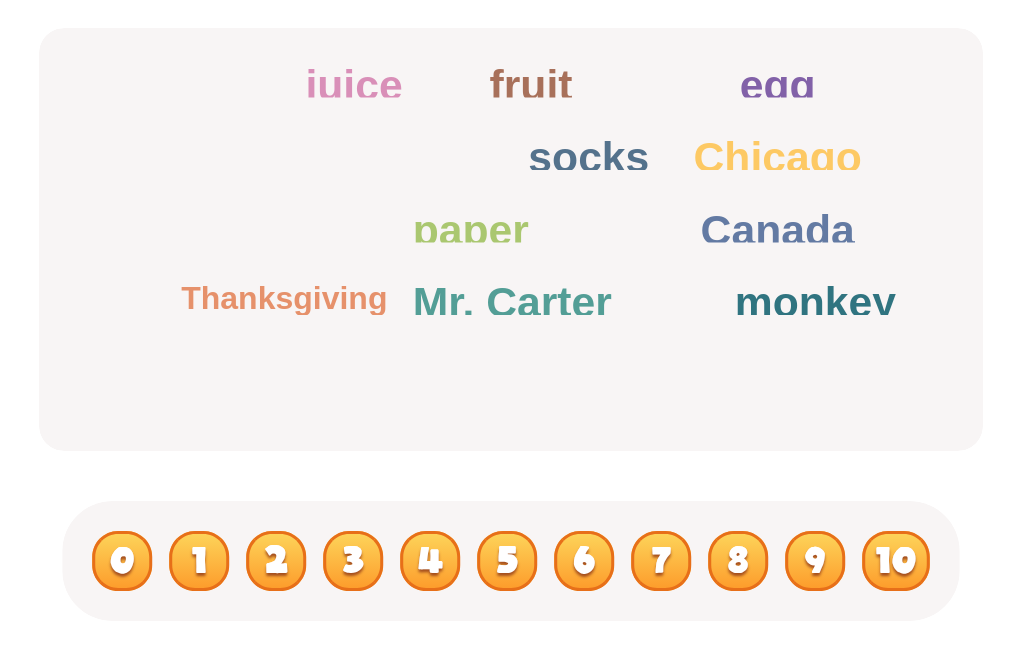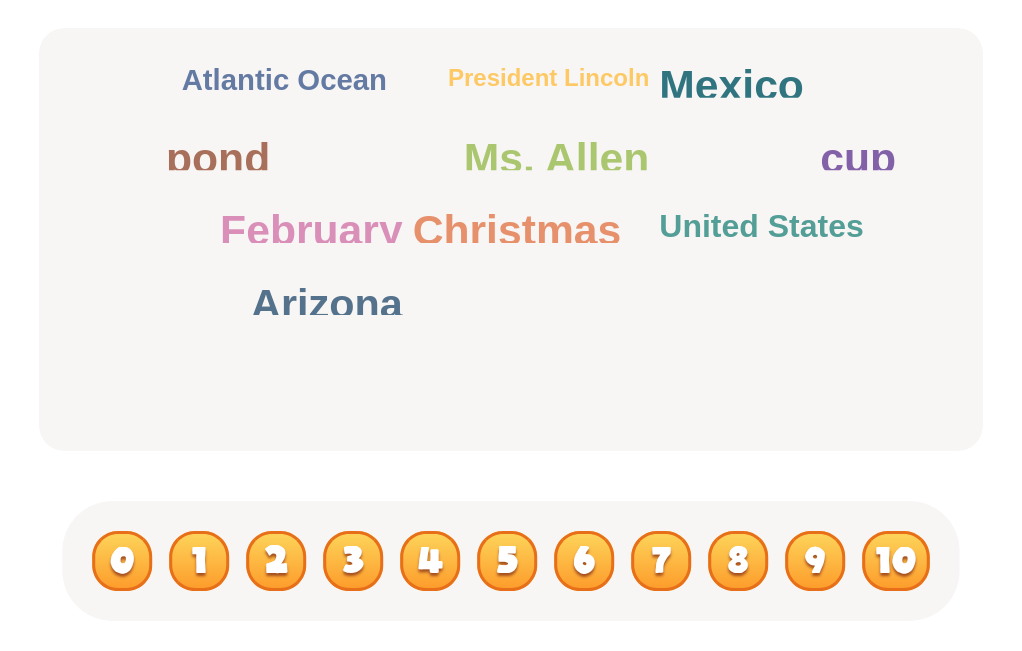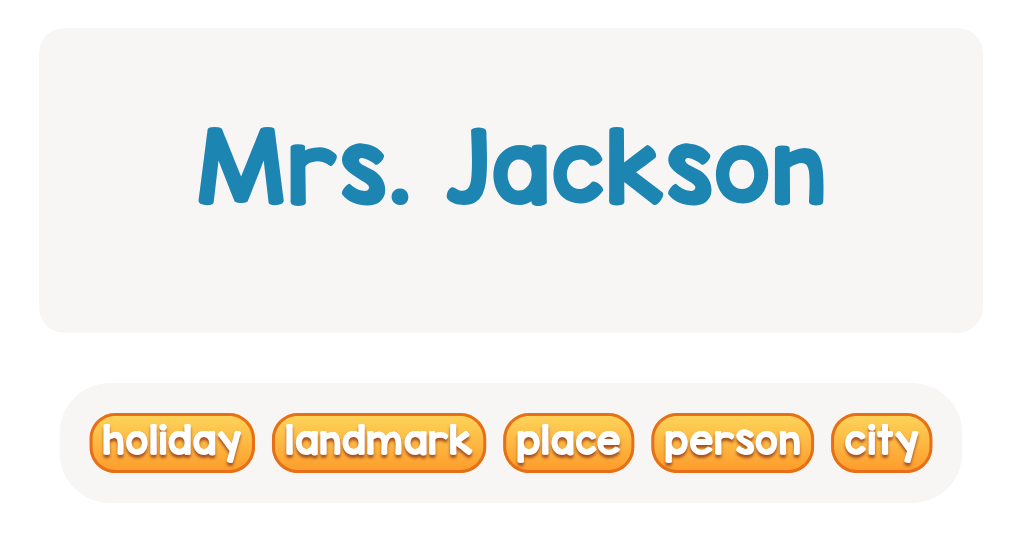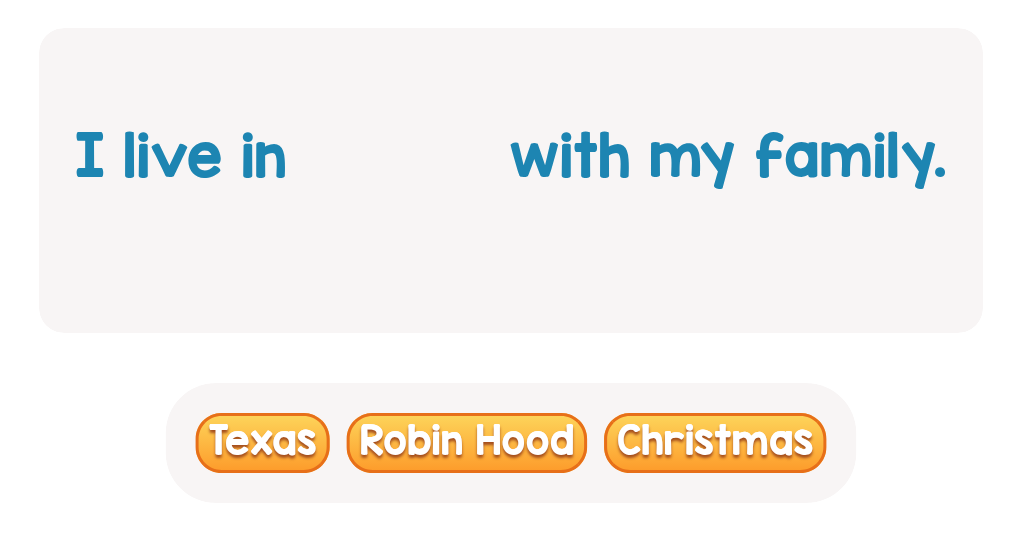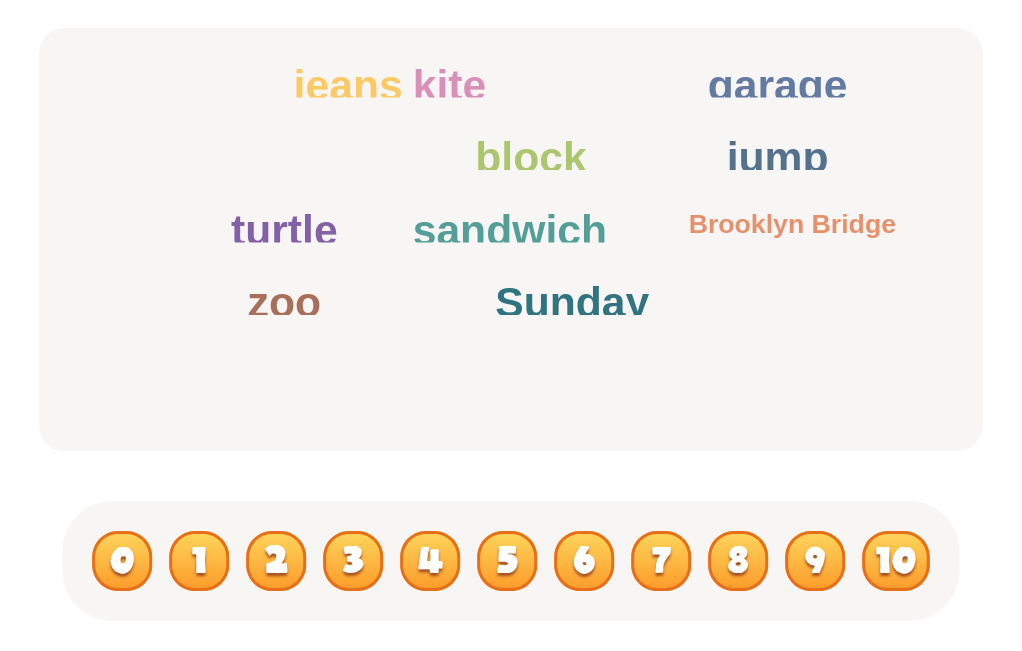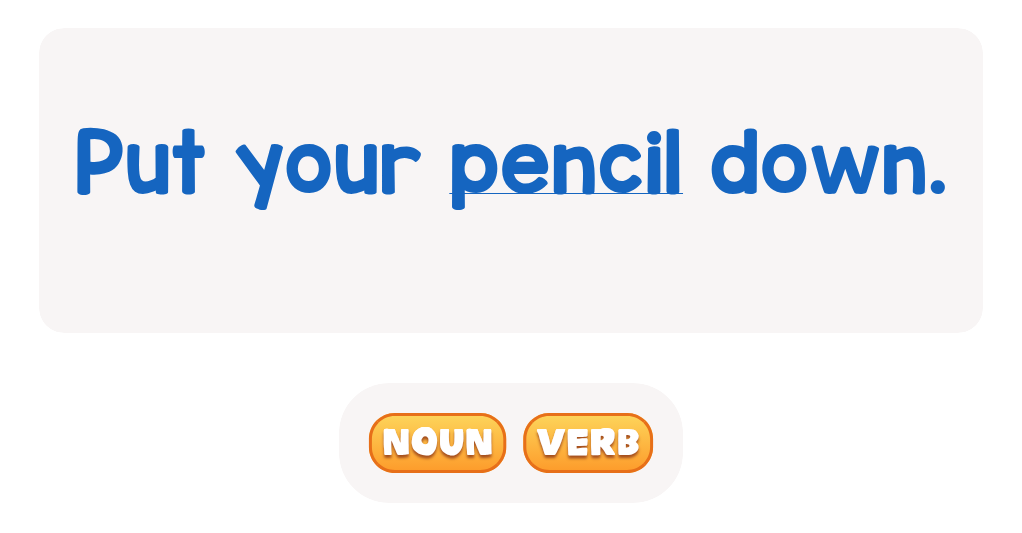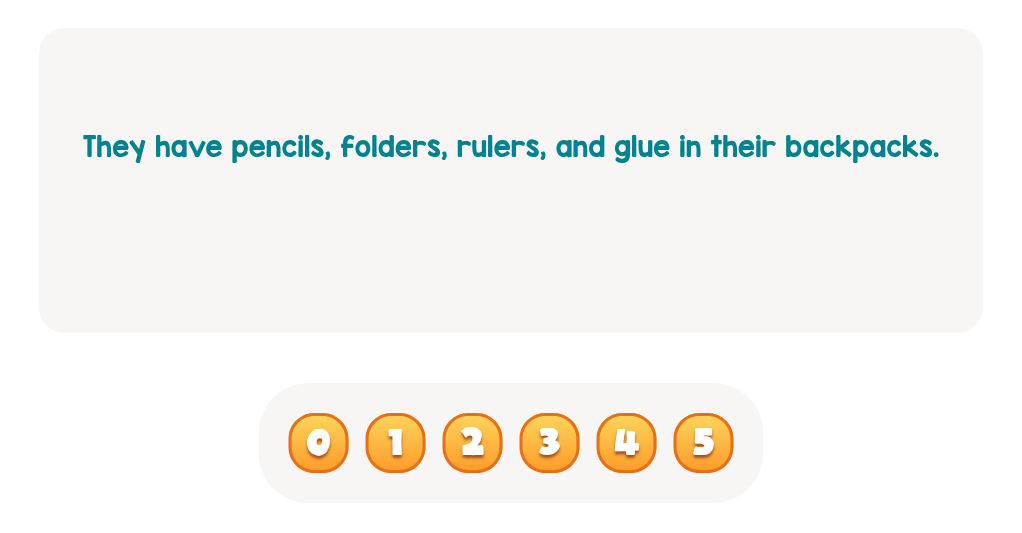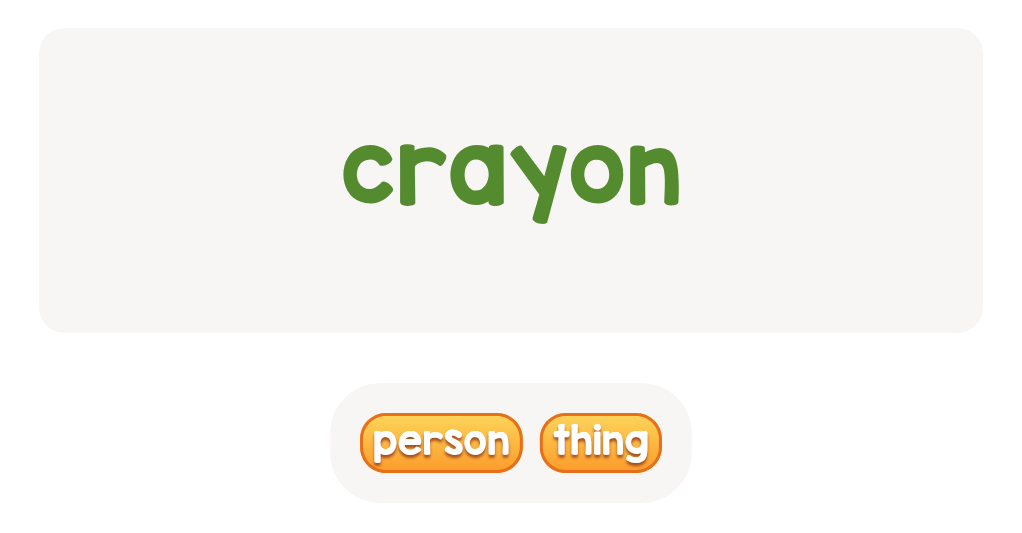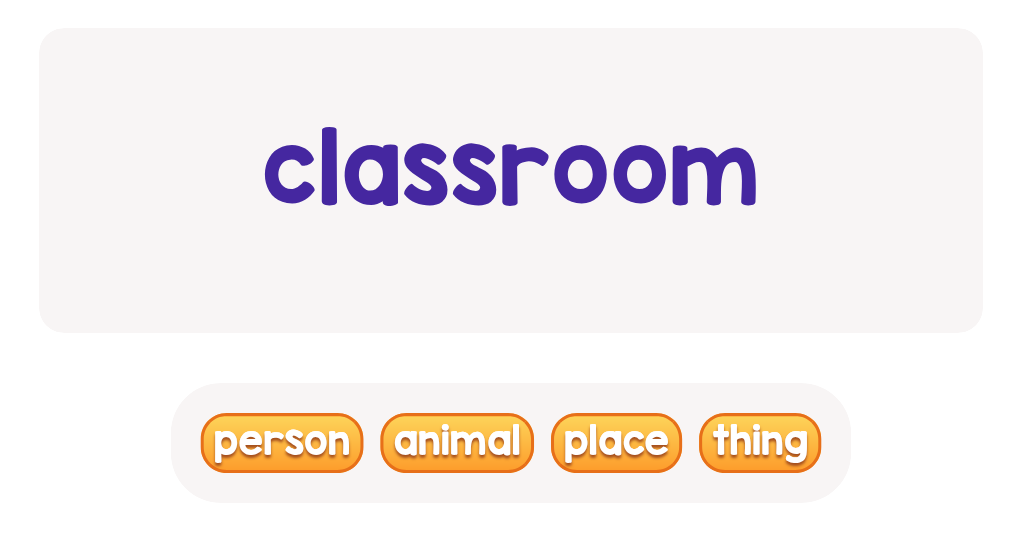Vocabulary development Normal Grammar Worksheets for Ages 5-9
5 filtered results
-
From - To
Enhance your child's vocabulary with our engaging Vocabulary Development Normal Grammar Worksheets, specifically designed for ages 5-9. These worksheets focus on building essential language skills while making learning fun and interactive. Each worksheet offers a variety of activities that challenge children to expand their word knowledge and use proper grammar in context. Your young learners will enjoy tasks like matching words, filling in the blanks, and creative writing prompts that foster their imagination. Ideal for classroom learning or at-home practice, these worksheets are an effective resource to boost vocabulary and grammar mastery, setting a strong foundation for lifelong communication skills.
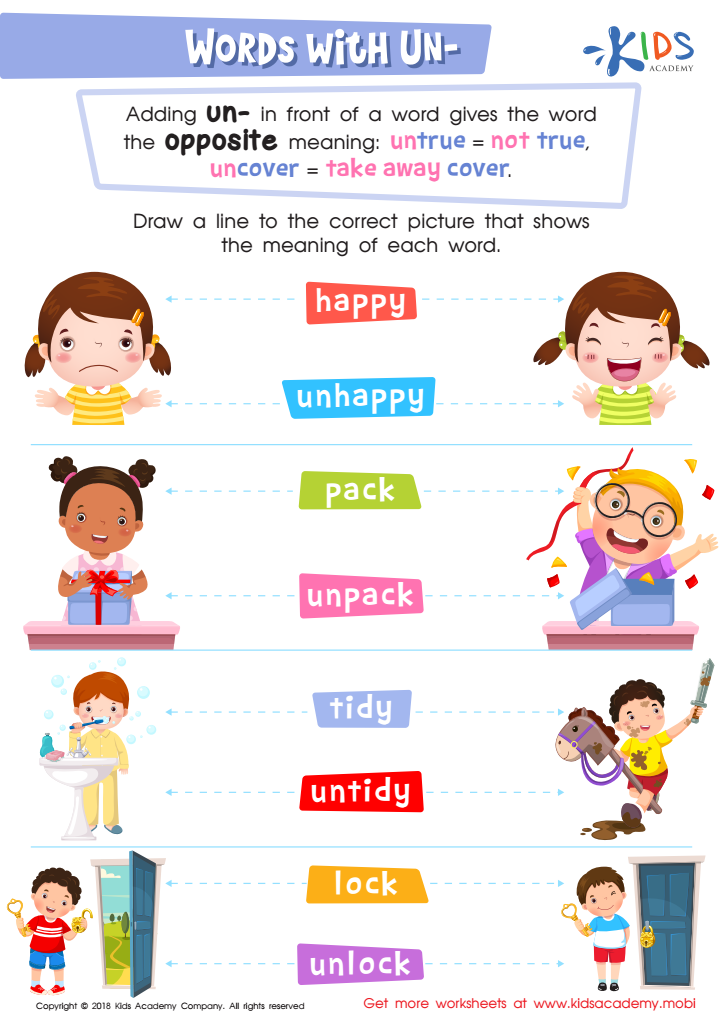

Words with Un– Worksheet


Phonics and Word Recognition: Assessment 3 Worksheet
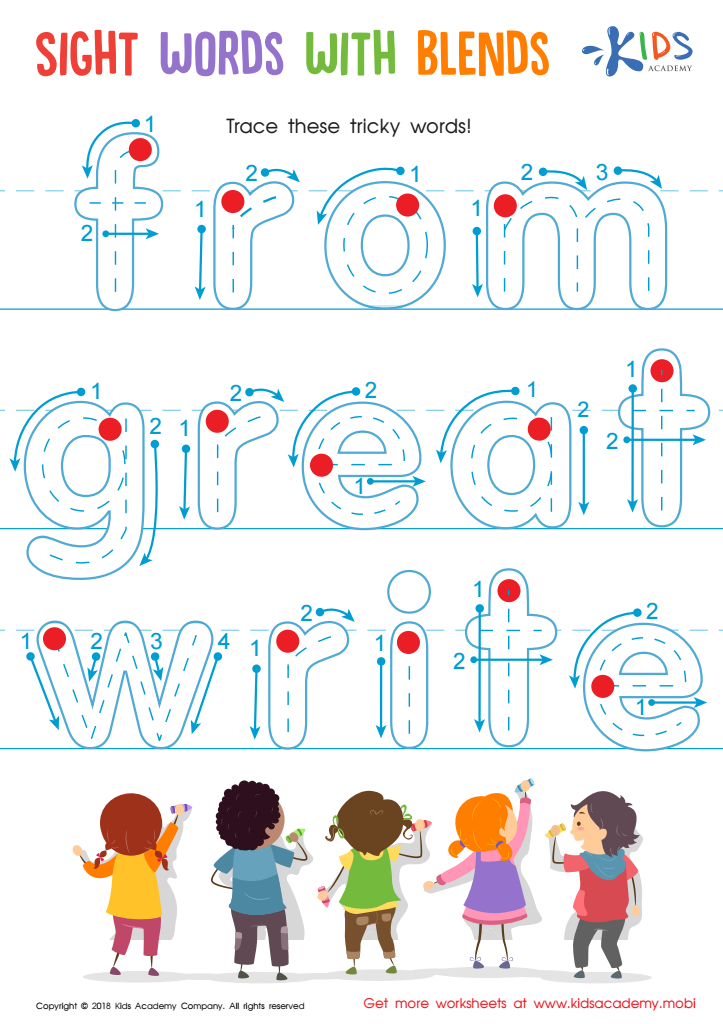

Sight Words with Blends Worksheet
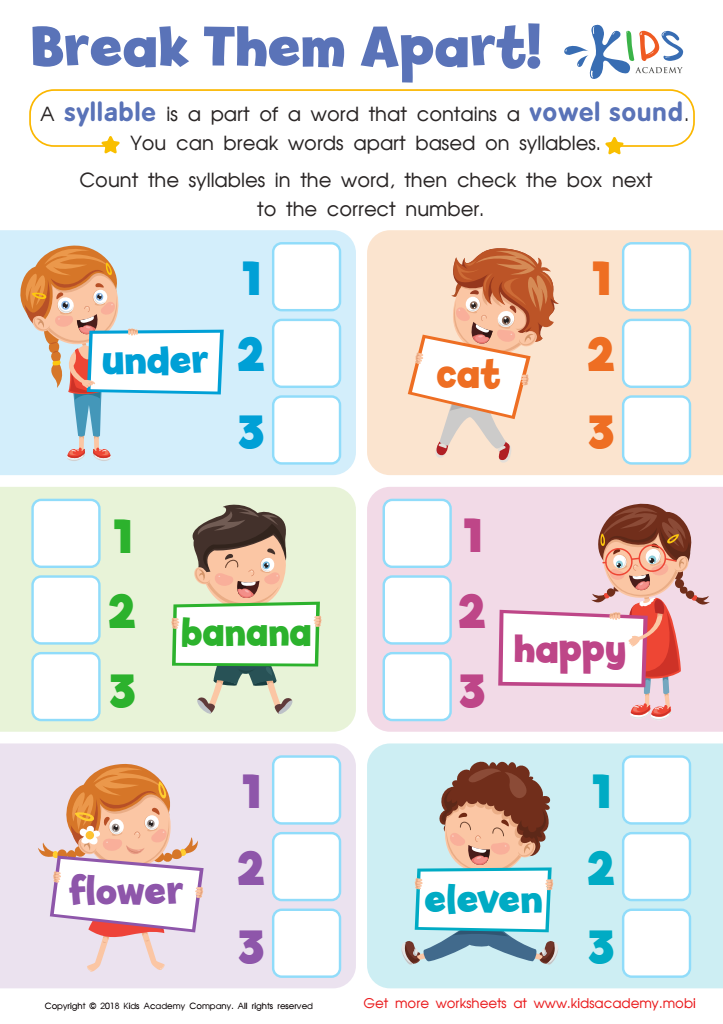

Reading: Break Them Apart Worksheet
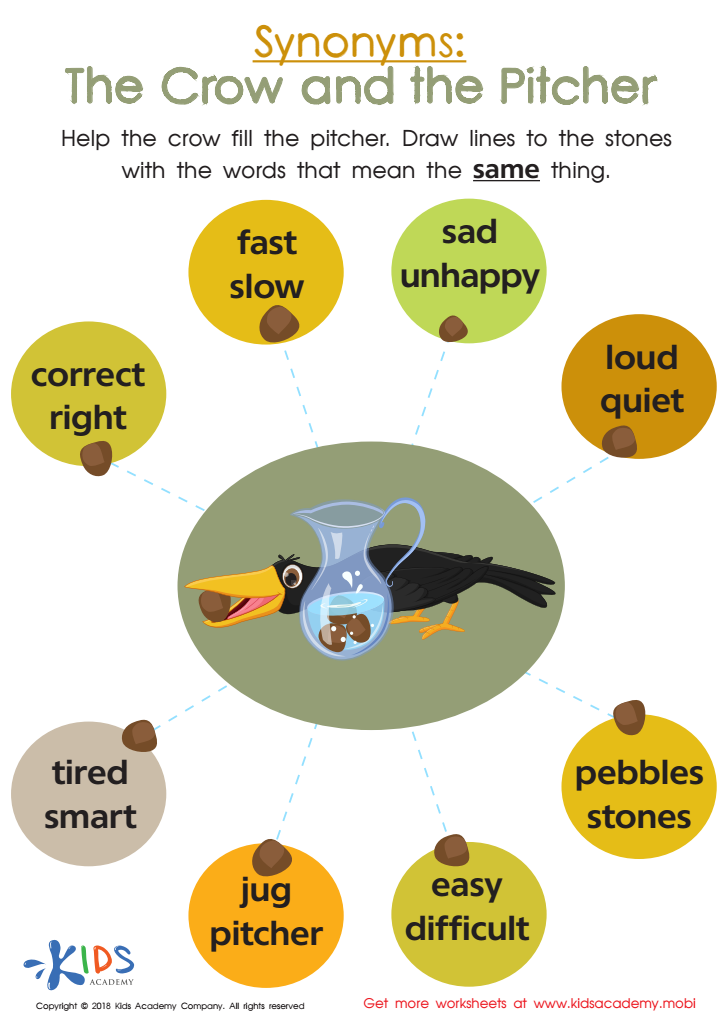

The Crow and the Pitcher Synonyms Worksheet
Vocabulary development is crucial for children aged 5-9 as it lays the foundation for their overall communication skills, reading comprehension, and academic success. During these formative years, children are rapidly acquiring language skills, and a rich vocabulary helps them express their thoughts, feelings, and ideas effectively. When parents and teachers emphasize vocabulary development, they empower children to engage more meaningfully in conversations, discussions, and collaborative activities.
A well-developed vocabulary also enhances reading comprehension. Children who can understand and decode more words are better equipped to grasp concepts in texts. This skill is essential not only for their current studies but also for future learning as they encounter more complex language structures.
Moreover, vocabulary development influences children's confidence. When they have the words to articulate their thoughts, they are more likely to participate actively in class and express themselves confidently. Encouraging vocabulary growth also promotes critical thinking and creativity, enabling children to explore a world of ideas and concepts.
In summary, prioritizing vocabulary development in young children is essential for nurturing their communication skills, academic performance, and overall confidence—setting them on a path for lifelong learning and success.
 Assign to My Students
Assign to My Students
